Having joined the Birth for Humankind team as a volunteer doula just nine months ago, she’s already worked with more than a dozen women as a primary and a backup doula, many of whom have suffered unimaginable trauma, abuse and loss. Bringing vast experience working with families who’ve experienced torture and trauma as refugees or seeking asylum, she brings a unique skillset to her role as doula. She holds space for women in a way that makes them feel safe, acknowledged, empowered and respected. She embodies the essence of what it means to be a doula and it is a pleasure to introduce you to her this World Doula Week.
Hi everyone, I’m Kristine.
I’m a social worker and counsellor and now a volunteer doula with Birth for Humankind. I’ve spent my entire career working cross-culturally, mostly with people from refugee and asylum seeker backgrounds, both in case management and therapeutic roles. I’ve also supported young people to recover from sexual exploitation.
My passion for supporting women comes from having been raised by strong women. And I’d say what draws me most to working with women from refugee and asylum seeker backgrounds is their resilience and their wisdom. I’ve learned so much about life just from listening to them speak about their lives and what they have learned along the way. I feel honoured to have seen so many people achieve wonderful things in their lives as they recover from the trauma they experienced as a refugee, which includes having a baby in a new country. It’s a great act of faith and hope: women who have so many reasons to be afraid and to retreat, choose not to; they choose to live and to believe that their children will have good lives, too.
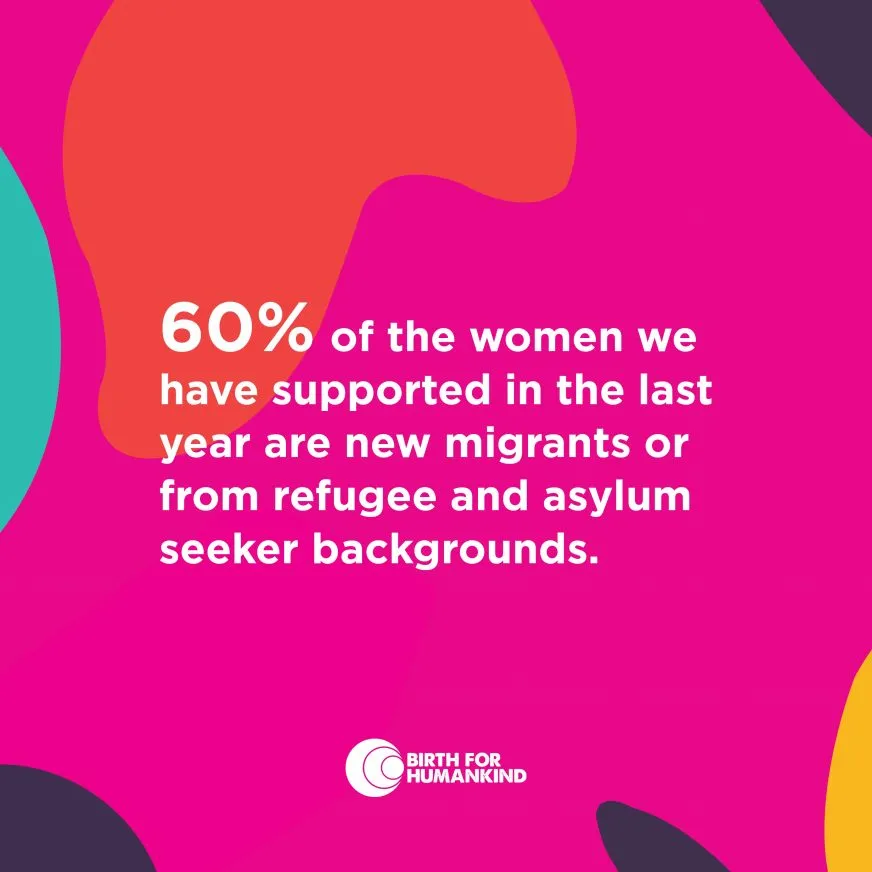
As a social worker, I have been privileged to support young women through the perinatal period (before, during and after birth), but I was unsure if there was a place for me in birth work as I couldn’t see myself as a midwife.
Having spent most of my career in London, I came to Melbourne a few years ago, ready to try something new. A friend suggested to me, casually over lunch, that I should look into being a doula. She lit a spark. I researched it and enrolled in a training course a few months later!
I became a doula in 2016 and started volunteering with Birth for Humankind in June 2017. I was matched with a woman straight away and her baby was born very soon after. I was so happy to get straight to work supporting a family to have a positive birth experience.
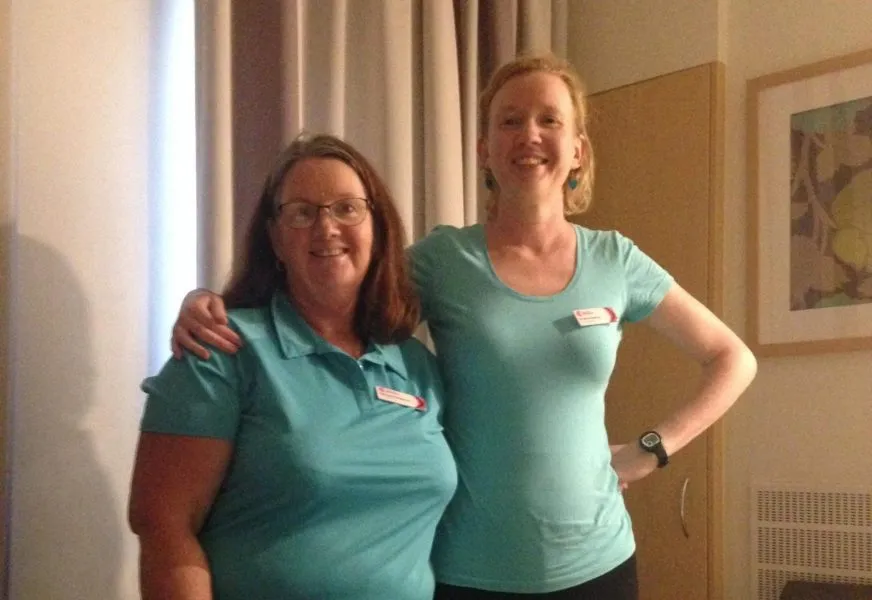
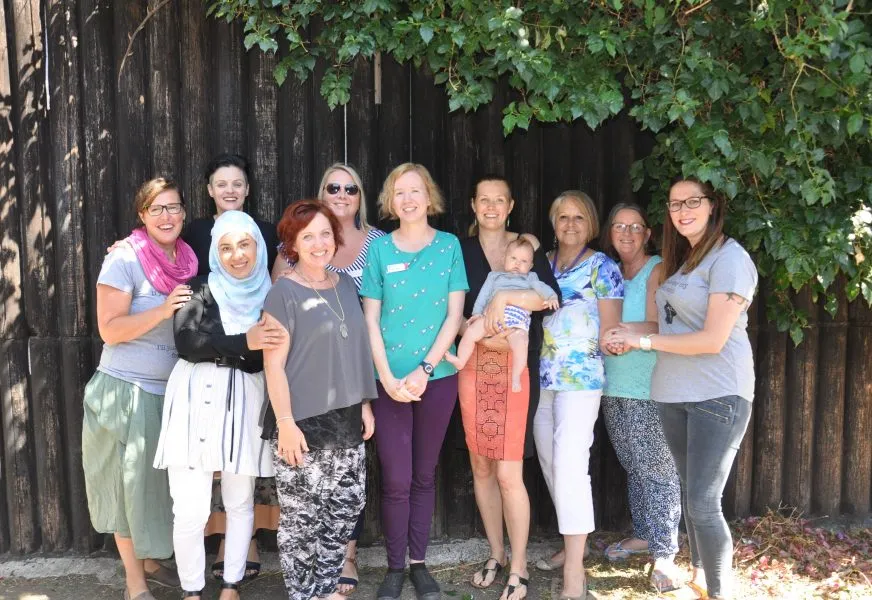
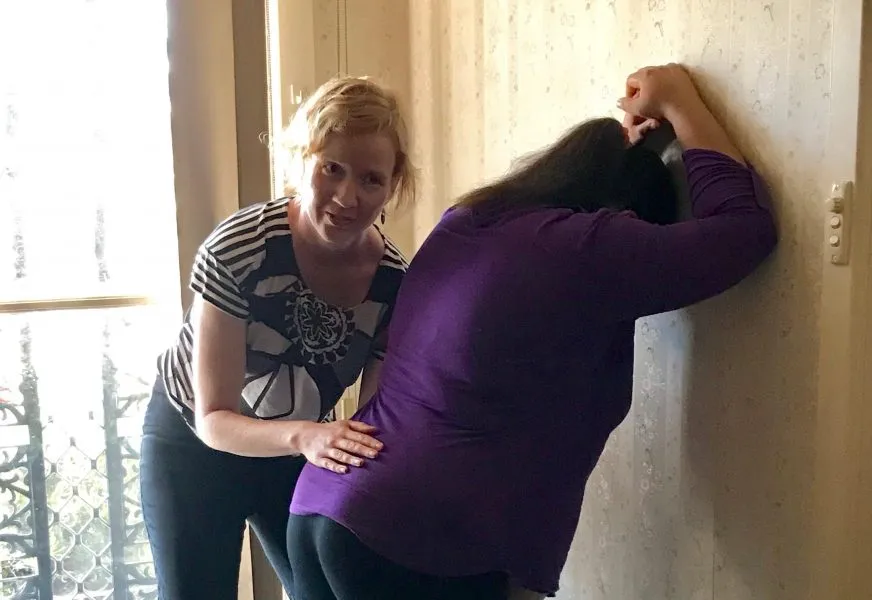
Women are referred to our doula support program through their hospital midwife or social worker, a community service organisation, or they can apply themselves. If they meet our eligibility criteria, they are matched with one of our volunteer doulas who offer information and support through their pregnancy, birth and in the early weeks of parenting. Our doulas are matched with women based on their geographic location, their experience and skillsets as well as their availability.
Research has consistently shown that doulas make a positive impact on women’s birth experiences, regardless of how their birth unfolds. Having the support of a doula can reduce stress for the woman and her family because she can rely on her doula’s knowledge and experience of pregnancy, birth, and the maternal health care system. I believe it relieves the burden on the woman to hold all of the information to make the decisions that are right for her.
I’ve found that partners and extended family members are often extremely grateful for the doula’s presence. Being a birth partner is a very difficult job, especially if you’ve never done it before or if it’s your first birth in a new country where you don’t know the language or the system. If the doula knows what to do, the partner and family doesn’t have to. They can relax and enjoy welcoming the baby.
Did you know 40% of the women we support at Birth for Humankind have a partner or support person? Contrary to widely held beliefs that a doula will replace the role of the partner, doulas can assist partners to feel at ease with their role in the birth journey and support them to contribute in the ways they wish.
Sometimes a doula provides a lot of practical support during a birth; other times she just needs to be there and her relationship with the family is enough to help them to feel safe.
Last year I supported a woman who had experienced birth trauma due to the way she was treated when giving birth to her first baby as a refugee in a country where she did not speak the language. She was scared the same thing would happen again while having her second baby here in Australia. This woman did not need physical support during her labour, so instead I found myself really, ‘holding space,’ a term used to describe the essence of what a doula does. In this case, it meant just being a familiar presence, helping the midwives to understand her cultural needs and background, and asking for an interpreter whenever we needed one. She reflected afterwards that she felt safer just knowing I was there and she also felt respected by everyone who cared for her. She also felt empowered to have more say in how she was cared for, and she intends to apply this to her next pregnancy.
A woman who is socially and economically disadvantaged is likely to face barriers in accessing evidence-based information about birth, perhaps because she can’t pay for birth preparation classes or the information is not available in her language. A doula can provide education and individualised support so that the woman can decide what she wants, and be by her side as she steps into her power to birth her baby on her own terms! That’s priceless.
Deciding to have a doula is one of the many decisions a woman can make in her pregnancy, and I believe all women should have the right to make that choice regardless of whether they can pay for the service.
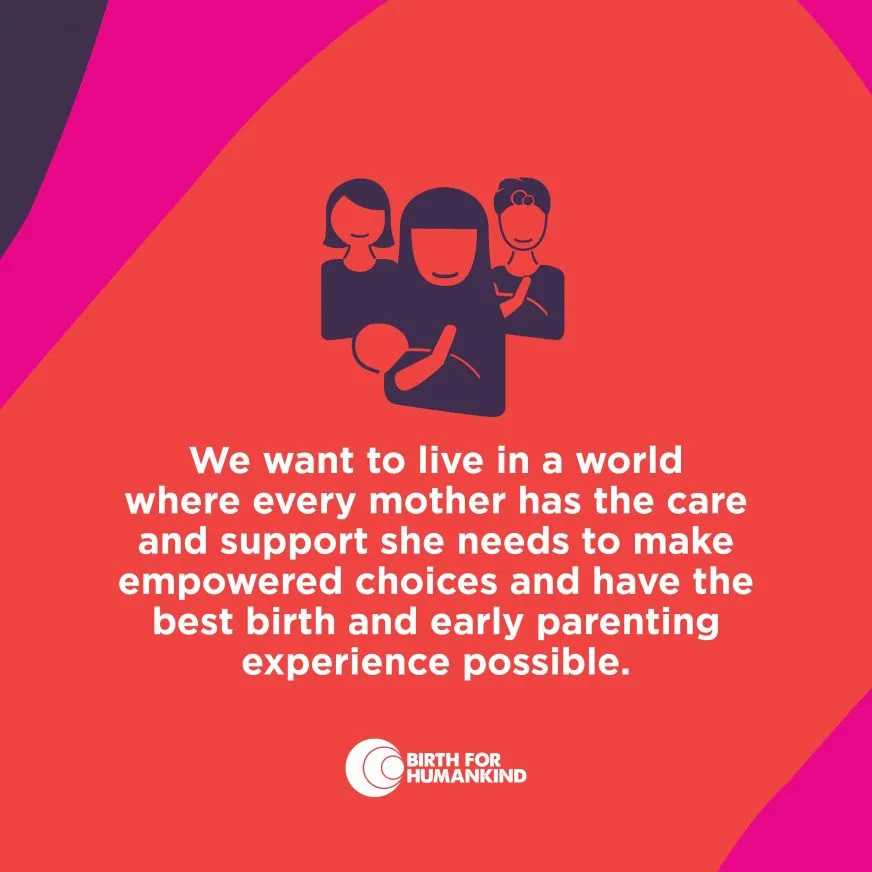
Many of the women Birth for Humankind supports simply can’t or don’t access the maternal health services they need for a healthy and safe pregnancy and birth. These include women from refugee, new migrant and asylum seeker backgrounds who might not speak English and have difficulty navigating our maternal health system. Women who are experiencing homelessness, sometimes as a result of family violence, and are unable to get to their appointments or engage with services because they are just trying to survive day-to-day. And young women who are often stigmatized and judged when they try and access maternal health services and so opt out altogether. A doula can help overcome these barriers.
As humans, our relationships with others are essential to our wellbeing and these relationships are at their most powerful around the time of birth, when a new little human is being welcomed. Families need to feel safe and supported to take on the huge task of parenting, and this is very difficult to achieve in the care of strangers. Every mother needs a village to care for her and her child. Society has changed a lot, but the village is still there and we do want to help.
One of the most obvious gaps I see in our maternal health system is continuity of care. Progress is being made with midwifery group practice programs but it’s still a minority of women who have access to these. Doulas can definitely help to bridge this gap. The continuity of care that a doula can provide is critical.
ALTHOUGH WOMEN HAVE ATTENDED AND SUPPORTED OTHER WOMEN DURING LABOUR FOR CENTURIES, CONTINUOUS SUPPORT DURING LABOUR IN TODAY’S MATERNAL HEALTH SYSTEM HAS BECOME THE EXCEPTION RATHER THAN THE NORM. WITH CONTINUOUS, ONE-TO-ONE SUPPORT, WOMEN ARE LESS LIKELY TO HAVE A CAESAREAN SECTION; HAVE A LONG LABOUR; GIVE BIRTH WITH VACUUM OR FORCEPS; HAVE AN EPIDURAL OR PAIN MEDICATION; OR REPORT NEGATIVE FEELINGS ABOUT THEIR CHILDBIRTH EXPERIENCE.
Hodnett et al., 2003
As doulas, we have to be prepared to support the woman on her own terms, even if she makes decisions you wouldn’t make for yourself. It’s important to be a good listener and to be willing to work hard at building rapport quickly. It is an absolute honour to be in the presence of a family at that precise moment of growth, and I hope I never get tired of it.
There are, of course, challenging aspects to the role as well — the sleep deprivation from a long birth comes to mind but I can get through it as long as I’m riding that oxytocin high! That said, good boundaries and self-care are incredibly important. We are privileged to be entering an intimate and often sacred space as doulas, and these qualities help to keep everyone safe. It also helps to be observant, reflective and a fast learner!
If you were to ask me what my favourite part of being a doula is I would say: Witnessing the magical powers of women as they birth their babies. My hope is that all women can give birth in safe and caring environments with people who know and respect them and their wishes.
Being part of this team is like being part of a unique sisterhood! These doulas have taught me so much already about the art and craft of being in service to women and their families, and I continue to learn from them and their extensive knowledge and professional experience. I really love the opportunity to team up with another doula to support a woman: going to visit women together and even attending births together. The dynamics are invigorating and we all benefit from being part of a team. But, most importantly, the women we support benefit from being held by a team that believes in her and is there to support her.
If I could tell you one thing about Birth for Humankind and the work this organisation does it would be that how women and babies experience birth matters. It affects them for the rest of their lives. Birth for Humankind is making a difference in that area and, I believe, it has the power to change society.
